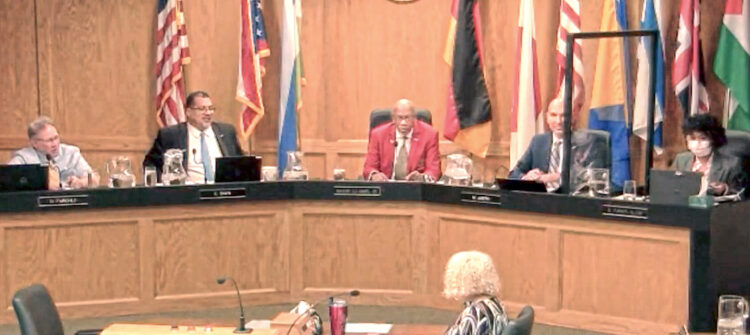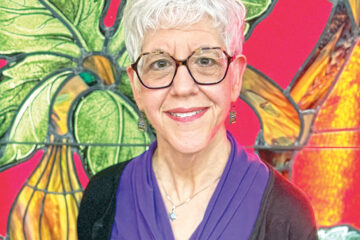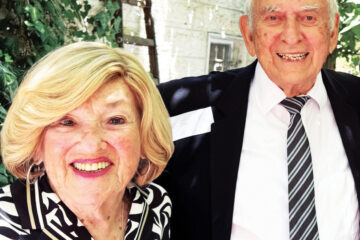Dayton City Commission’s cease-fire resolution attempts tightrope walk

Unanimously approved wording expresses sympathy, not blame, in Israel-Hamas war.
By Marshall Weiss, The Dayton Jewish Observer
The Dayton City Commission unanimously passed a resolution Dec. 20 on the “current conflict in the Middle East” that “urgently calls for a cease-fire with the release of all civilians being illegally held or imprisoned on both sides of the conflict, along with the establishment of humanitarian aid corridors in order to preserve human life.”
The informal resolution also expressed sympathy for the “ongoing human suffering” caused by the conflict, affirmed Dayton is welcoming to Jews and Muslims, and encouraged Dayton’s residents “to offer support and sincere condolences to members of our community affected by the ongoing violence and loss of life.”
Dayton’s resolution also noted the city’s “unique voice in this conflict,” as one of only five cities in the United States to have official sister city programs with both a city in Israel and a city in the Palestinian territories: Holon, Israel, and Salfit, in the West Bank.
The resolution denounced Islamophobia and antisemitism, affirmed its support for the Israeli and Palestinian people to live in peace and security, championed a two-state solution to the Israeli-Palestinian conflict, and condemned “all acts of violence committed against civilians in Gaza, in Israel, and around the world.”
Anti-Israel expressions in the lead-up to the resolution
Prior to the city commission meeting, demonstrators outside City Hall unraveled a scroll with the names of 7,000 children killed in Gaza since the war began.
In a Facebook post a week before the resolution vote, Dayton City Commissioner Shenise Turner-Sloss wrote that while she affirms her commitment to combatting Islamophobia and antisemitism and her support for the people of both Israel and Palestine, “We must recognize and respond to the atrocities against Palestinians.”
And in November, Dayton City Commissioner Darryl Fairchild offered a prayer at the Islamic Council of Dayton’s “Stop the genocide!!! Ceasefire now!!!” peace rally at Dayton’s Courthouse Square.
In an interview with The Observer, Fairchild said he had not been aware the rally was framed as “Stop the genocide,” and that he hadn’t thought through whether he believed Israel is committing genocide against the citizens of Gaza.
The final language on the resolution did not level terms against Israel such as atrocities or genocide. It referred to members of Hamas as militants rather than terrorists.
The resolution referred in general to “the horrific violence of this war.”
It was Fairchild who had proposed the resolution. The commissioner mentioned at the Dec. 20 meeting that along with leaders of Dayton’s Arab and Muslim communities, he sought input from Jewish Federation of Greater Dayton CEO Cathy Gardner.
“We’ve seen how viciously antisemitic some of these city commission meetings around the country have become when they’ve voted on resolutions about the Israel-Hamas war,” Gardner said.
“That did not happen here. Yes, the final language didn’t go as far as we would have liked in condemning Hamas, but yes, we agree that there should be a cease-fire: Hamas should declare an unconditional surrender, lay down its arms, and free the remaining hostages abducted from Israel immediately.”
Fairchild told those at the Dec. 20 commission meeting that he thought the resolution was an important step to “speak our desires for peace, and knowing that it’s going to be insufficient, that unfortunately, we don’t have that power to bring that peace. But hopefully, our light will be added to others, and we’ll move towards that day.”
He said he was encouraged that the resolution pointedly called out the rise of antisemitism, Islamophobia, and hate crimes in general.
“I look forward to working with our community members to address those issues as well. Because we know that members of our community are feeling unsafe. And that should be unacceptable to all of us.”
To read the complete February 2024 Dayton Jewish Observer, click here.





